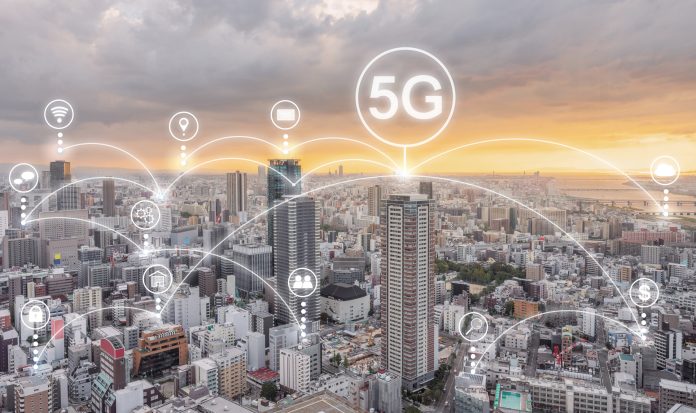Tony Breen, Director of ihavesignal Limited, explains the importance of improving workplace efficiency through the critical role of mobile signal boosters
In today’s fast-paced business environment, seamless communication is the cornerstone of productivity and professionalism. As enterprises increasingly rely on mobile devices for critical operations, the importance of robust mobile signals cannot be overstated.
Statistics from the UK, for example, indicate that 66% of employees use their mobile phones for work purposes. However, despite the widespread adoption of mobile technology, many workplaces continue to grapple with connectivity issues that hinder efficiency and communication.
The causes of mobile signal problems are multifaceted. Common factors include the construction materials of buildings, such as thick concrete and steel and the increasing need to improve building efficiency ratings, which can obstruct signal penetration. These issues can have severe implications for businesses. It is estimated that poor mobile signal costs U.K. businesses approximately £4 billion each year due to connectivity-related issues. In the U.S., this has been reported to be as high as $28 billion annually.
Workplace efficiency: Implementing mobile signal-boosting technology
Addressing these challenges requires a strategic approach. One effective solution businesses should consider is implementing mobile signal-boosting technology. ihavesignal specialise in surveying and enhancing mobile signals within buildings by using advanced technology designed to amplify external mobile signals throughout the building duplicating the achievable signals from outside the building.
Often, Wi-Fi technology is considered the leading solution for mobile connectivity; however, mobile signal and Wi-Fi are frequently confused, and it’s important to recognise that while Wi-Fi is an essential aspect of workplace communication, it does not fully substitute the functions of mobile phone signals.
An effective cellular booster solution will complement a Wi-Fi network, helping to alleviate over-reliance on the Wi-Fi network, reducing network congestion, and affecting speed and reliability, particularly during peak usage times.
By integrating both robust mobile signal and Wi-Fi solutions, businesses can ensure comprehensive connectivity, thereby avoiding misdiagnosis of connectivity issues and offering a more resilient communication infrastructure for employees, clients and visitors.
So, how do you enhance your mobile signal?
This technology operates by capturing external cellular carrier signals, amplifying them, and then redistributing the strengthened signals throughout a building. This ensures that mobile devices receive consistent and reliable connectivity, irrespective of their location within the premises. The benefits of such technology are immediate and significant. Enhanced mobile signals lead to fewer dropped calls, faster data transmission, and enhanced user experience.
A prime example of the impact of mobile signal boosting is seen in the case of North Staffordshire Combined Healthcare NHS Trust (Harplands Hospital) in the UK. The hospital reached out to ihavesignal due to significant coverage problems with one of their mobile networks.
Critical issues related to personal security and reliable connectivity, the staff’s ability to operate at full potential was hindered by issues of making and receiving phone calls at work. The hospital needed a solution to cover wards, enabling medical and support personnel to stay connected within the ward areas, thus ensuring seamless communication and effective patient support.
ihavesignal was tasked with addressing these challenges to enhance the hospital’s overall operational efficiency and safety. The deployment of an Ofcom legally compliant mobile signal boosting technology at Harplands Hospital effectively resolved coverage issues, allowing staff to communicate effortlessly and enhancing both operational efficiency and patient support.
Moreover, the implementation of signal-boosting technology can have a noticeable impact on staff, patient and visitor satisfaction. Reliable mobile communication is often viewed as a critical component of a modern and well-equipped workplace. For employers, implementing an effective mobile signal booster for the office can improve employee motivation, giving them access to seamless connectivity, which in turn can drive higher levels of productivity and engagement.
The importance of reliable mobile connectivity
As businesses navigate the demands of the modern digital landscape, the importance of reliable mobile connectivity cannot be underestimated. Investing in mobile signal-boosting technology can address common connectivity challenges, drive productivity, and enhance the company’s professional image. As demonstrated by the significant financial losses attributed to poor mobile connectivity in the global market, the return on investment in this technology is evident.
Enhancing mobile signals should be a strategic priority for organisations committed to maintaining a competitive edge and fostering a high-performance work environment. By doing so, businesses can not only enhance operational workplace efficiency but also create a more satisfied and connected workforce.











